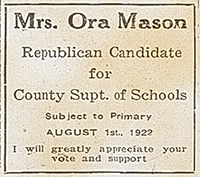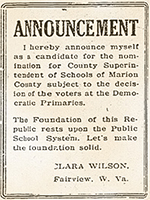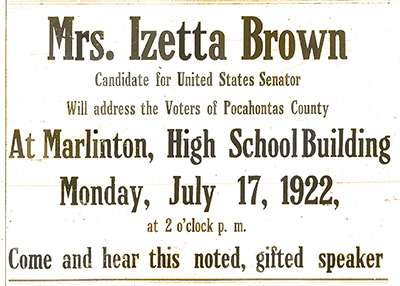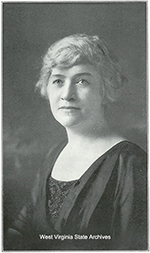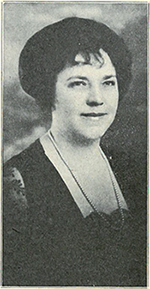
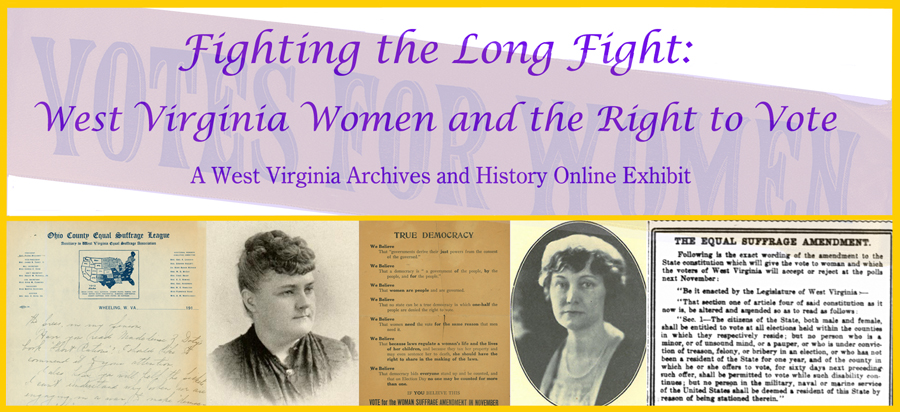
Chapter Eight |
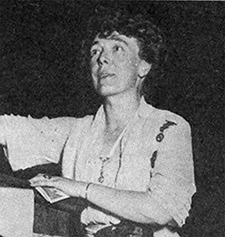 Izetta Jewell Brown, speaking at the Democratic National Convention in 1920. The Suffragist, August 1920 |
On June 21, 1922, after months of speculation as to whether she would run for office, Izetta Jewell Brown of Kingwood announced her candidacy for the U.S. Senate. Running for the seat of Senator Howard Sutherland, a Republican, Brown first had to beat a formidable opponent in the Democratic primary, Congressman Matthew M. Neely. Brown campaigned for world peace, a reduction in taxes on land, elimination of red tape in relief for soldiers, clean government, and other goals. She lost in the August 1 primary, 39,736 to 62,472, but won majorities in 12 counties. |
"What will women do in politics? What will they do with the vote? The great majority, mind you, I say the great majority will continue as they have been throughout the centuries, the mothers of the land, and they will continue to glory in it.
The great majority will slowly but surely widen that home interest to community interest. The beautiful spirit of mother-love will be broadcasted.
Mother-love in politics. It sounds odd, doesn't it? But I am just old-fashioned enough to believe that the spirit of mother-love will never hurt a community, a state or a nation.
Who are really opposing women in politics the most? The professional politicians! the professional politicians who look on the handling of our government as a great game and who busily resent any appearance of interferences." |
| Republican Hattie Stein of Madison, who had come to West Virginia in 1920 as a chapter organizer for the American Red Cross, ran for the House of Representatives 6th congressional district seat held by Leonard Echols, of whom she was strongly critical. In a speech at the Kanawha County courthouse, Stein accused Echols of failing to do anything to keep the South Charleston Naval Ordnance Plant. "Mr. Nichols congressional record has been furnished me by a research expert, and not once has he ever supported or worked for a measure that was of benefit to the great body of people. A number of times he is reported 'not voting'," Stein stated. She asked, "Has this West Virginian represented or mis-represented you?" (Charleston Gazette, July 30, 1922) With considerably less name recognition than a candidate such as Izetta Jewell Brown, Hattie Stein finished third in the primary with 1,831 votes. | 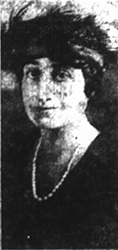 Hattie Stein, Charleston Gazette, July 2, 1922 |
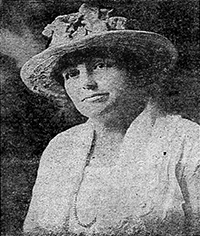 Artha Morgan Grose, candidate for the House of Delegates, The West Virginian, July 24, 1922 |
At least six women ran for the West Virginia House of Delegates. Three of them--Mrs. Tom Gates (Democrat), Nina Blundon Wills (Republican), and Mrs. Charles A. Reilly (Socialist)--were from Kanawha County. Socialist Amy Walker was from Fayette, Republican Martha E. Harmon was from Mercer, and Republican Mrs. E. A. Grose was from Marion. Harmon lost in the primary election, but the other five were on their county's ballot for the general election in November. Together, the two Socialist candidates received fewer than 1,000 votes, although both women received the highest number of votes among the Socialist candidates running for those seats. In Marion County, where three delegates were elected, Artha Morgan Grose finished sixth with a respectable 7,370 votes, the top voter getter receiving 8,925 votes. |
"Women should have a voice in the framing of the laws which affect them. They should use their mentalities in bettering the conditions which surround them, and while they have been doing that in the past, their efforts in this direction should be increased." |
